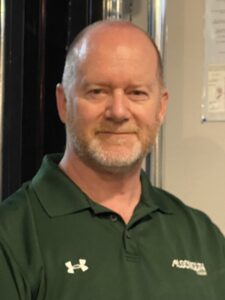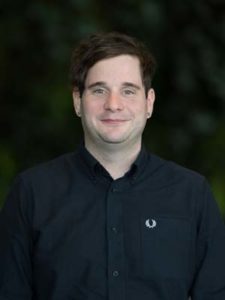Police Foundations
Your first step in preparing for a career in law enforcement.
- Focus on community service and partnerships
- Fitness program aligned with law enforcement skill and testing standards
- Portfolio development designed to place graduates in a competitive position for hire
Program Availability and Schedule
Availability
Open
Closed
Waitlisted
Start Term
Availability
International
Availability
Competitive?
Fall 2025
No
Winter 2026
No
Schedule
Data is currently unavailable for this program. Please take a moment to report this via our Website Feedback Form. Thank you!
Program Summary
Credential
Program Delivery
Program Code
Area of Interest
School
Campus
Other Delivery Options
Work Integrated Learning
Eligible for Post-Graduation
Work Permit?
The Police Foundations Ontario College Diploma program provides you with a foundational knowledge of the field of law enforcement. Curriculum includes both theory and applied lessons in law enforcement - helping you prepare for employment in the industry. This program offers instruction in:
police powers and procedures community policing investigation processes diversity social sciences communications...(read more)
Overview
Your first step in preparing for a career in law enforcement.
The Police Foundations Ontario College Diploma program provides you with a foundational knowledge of the field of law enforcement. Curriculum includes both theory and applied lessons in law enforcement - helping you prepare for employment in the industry. This program offers instruction in:
- police powers and procedures
- community policing
- investigation processes
- diversity
- social sciences
- communications
While there is a strong theoretical aspect to this program, there are many opportunities for hands-on learning through in-class scenario situations and our fitness program. Outside the classroom, students are required to complete 25 hours of volunteering at an approved community-based agency.
The program prepares you to apply for and be tested for employment in the law enforcement industry. As fitness is an important part of a career in law enforcement, you use an on-site fitness facility to prepare for physical fitness tests required by law enforcement agencies. In addition to your work in our fitness facility, you establish and maintain your own exercise schedule.
There are a number of potential job opportunities for graduates of this program in areas such as:
- municipal, provincial or federal police services
- military police service
- bylaw services
- Canada Border Services Agency
- transit security
- private or public sector security
- Correctional Services Canada
- social services agencies
- Government of Canada
- Parliamentary Protective Services
- Commissionaires
SUCCESS FACTORS
This program is well-suited for students who:
- Possess good communication (written, verbal, technological) and interpersonal abilities.
- Are committed to serving the broad and diverse needs of their community.
- Have strong analytical and observational skills.
- Enjoy working as a team member.
- Maintain a good level of physical fitness.
Courses
Programs at Algonquin College are delivered using a variety of instruction modes. Courses may be offered in the classroom or lab, entirely online, or in a hybrid mode which combines classroom sessions with virtual learning activities. Upon registration, each full-time student is provided an Algonquin email account which is used to communicate important information about program or course events.
Code:
PFP1010
Course Name:
Canadian Criminal Justice System
Course Description:
The basis of the criminal justice system in Canada operates on processes and principles originating from common and civil law. Focus is on t... + Read More
Hours:
42.0
Code:
PFP1031
Course Name:
Introduction to Sociology
Course Description:
Sociology is a science of society and culture that explores our interdependencies and differences. By providing a critical lens regarding to... + Read More
Hours:
42.0
Code:
PFP1040
Course Name:
Communications I
Course Description:
Communication remains an essential skill sought by employers, regardless of discipline or field of study. Using a practical, vocation-orient... + Read More
Hours:
42.0
Code:
PFP1051
Course Name:
Political Science/Public Administration
Course Description:
Decisions made at all levels of government impact the professional and personal lives of Canadians. Students cultivate an understanding of t... + Read More
Hours:
42.0
Code:
PFP1063
Course Name:
Fitness and Nutrition
Course Description:
Society has come to recognize that personal and collective wellness is essential to enhance the quality of life. Students examine the concep... + Read More
Hours:
28.0
Code:
PFP2020
Course Name:
Interpersonal and Group Dynamics
Course Description:
Successful navigation of interpersonal and group dynamics is fundamental to working in law enforcement. Students examine and practise group ... + Read More
Hours:
42.0
Code:
PFP4010
Course Name:
Provincial Offences
Course Description:
Policing requires strong foundational knowledge of provincial legislations and acts in relation to offences. Students examine scenarios and ... + Read More
Hours:
28.0
Code:
PFP2001
Course Name:
Introduction to Psychology
Course Description:
A key component to police-community relations is possessing foundational knowledge around psychology. Students apply basic psychological con... + Read More
Hours:
42.0
Code:
PFP2010
Course Name:
Criminology
Course Description:
Criminology seeks to understand the underpinnings of criminal and deviant behaviour. Students examine this behaviour through sociological, b... + Read More
Hours:
42.0
Code:
PFP2040
Course Name:
Communications II
Course Description:
By the very nature of their work, law enforcement officers communicate constantly with co-workers and a diverse public. Students study and p... + Read More
Hours:
42.0
Code:
PFP2055
Course Name:
Police Powers, Ethics and Professionalism
Course Description:
Law enforcement requires clarity around scope of powers and professional expectations. Students examine legislated authorities and best prac... + Read More
Hours:
42.0
Code:
PFP2096
Course Name:
Fitness and Lifestyle Management
Course Description:
Ensuring one's personal fitness and a healthy lifestyle is an important aspect of maintaining a successful career in law enforcement. Studen... + Read More
Hours:
28.0
Code:
PFP3010
Course Name:
Criminal and Civil Law
Course Description:
Law enforcement officers are required to possess a basic understanding of most of the criminal laws they are charged with enforcing. Student... + Read More
Hours:
42.0
Code:
PFP6000
Course Name:
Community Service
Course Description:
Volunteerism not only benefits a community; it can broaden the worldview of the volunteer. Students who give their time and energy to an app... + Read More
Hours:
42.0
Code:
GED0444
Course Name:
General Education Elective
Course Description:
Students choose one course, from a group of general education electives, which meets one of the following five theme requirements: Arts in S... + Read More
Hours:
42.0
Code:
PFP2031
Course Name:
Mental Health in Law Enforcement
Course Description:
Having a basic understanding of mental illness and the symptoms of different mental illnesses prepares law enforcement personnel to better d... + Read More
Hours:
42.0
Code:
PFP3002
Course Name:
Victimology
Course Description:
An increased awareness of the ripple effect of crime has given rise to victimology as a significant field of study. Students research victim... + Read More
Hours:
42.0
Code:
PFP3021
Course Name:
Criminal Code and Federal Statutes
Course Description:
The Criminal Code, a federal statute enacted by Parliament, provides the federal government exclusive jurisdiction to legislate criminal off... + Read More
Hours:
42.0
Code:
PFP3035
Course Name:
Fitness for Law Enforcement
Course Description:
Extensive preparation is necessary when applying for a career in policing or other law enforcement fields. Students adhere to their personal... + Read More
Hours:
28.0
Code:
PFP3055
Course Name:
Police Powers and the Law
Course Description:
Parameters relating to the powers of law enforcement is essential knowledge in effectively performing one's duty. Students expand personal k... + Read More
Hours:
28.0
Code:
PFP4040
Course Name:
Investigation and Evidence
Course Description:
Accuracy and procedure are key to ensuring admissibility of details and evidence. Students examine the requirements of a continuing investig... + Read More
Hours:
42.0
Code:
PFP4098
Course Name:
Career Preparation
Course Description:
Preparation is critical towards the development of competitive candidacy in law enforcement. Students work to enhance their skills, knowledg... + Read More
Hours:
42.0
Code:
PFP2000
Course Name:
Introduction to Research
Course Description:
Informative decisions and action are strongly influenced by research. Students examine the different types of social science research, the t... + Read More
Hours:
28.0
Code:
PFP2071
Course Name:
Diversity in Canada
Course Description:
Diversity is a hallmark of Canada's progressive society. Students consider the historical, societal and political response to this diversity... + Read More
Hours:
42.0
Code:
PFP3040
Course Name:
Interviewing and Investigations
Course Description:
A key component of policing is possessing the skills and knowledge to effectively conduct interviews and investigations. Students develop th... + Read More
Hours:
42.0
Code:
PFP3050
Course Name:
Youth in Conflict with the Law
Course Description:
Youth in legal conflict are often given special consideration when compared to adults. From historical, philosophical and contemporary persp... + Read More
Hours:
28.0
Code:
PFP3071
Course Name:
Traffic Management
Course Description:
Possessing the knowledge, skills and ability to locate and apply sections of the Provincial Traffic Law and Criminal Code of Canada is a key... + Read More
Hours:
42.0
Code:
PFP4050
Course Name:
Conflict Management
Course Description:
Law enforcement personnel require the ability to intervene in conflict and crisis situations with competence and confidence. The conflict si... + Read More
Hours:
42.0
Code:
PFP4061
Course Name:
Community Policing: Partnership and Engagement
Course Description:
Fostering strong relationships between law enforcement and communities lays the foundations towards a healthy, productive society. Students ... + Read More
Hours:
42.0
Code:
PFP4092
Course Name:
Fitness and Self Defence
Course Description:
Students examine best practices within the policing profession in relation to restraint, protection and defensive techniques in consideratio... + Read More
Hours:
42.0
Careers & Pathways
Careers
Graduates of this program may find employment in municipal, regional and provincial police services in Ontario and the rest of Canada, Military Police Service, social service agencies or bylaw services. Graduates are encouraged to verify entry requirements with their choice of law enforcement agencies, as the requirements vary between agencies. Multiple career opportunities are also available outside of Police services, such as CBSA, corrections, By-law and more.
Pathways
Please note: There may be more pathways available for this program than are listed here. Please use our Pathways search tool to see every option.
Learning Outcomes
The graduate has reliably demonstrated the ability to:
- Complete all tasks in compliance with pertinent legislation, as well as policing standards, regulations and guidelines.
- Analyze all relevant information and make effective and legally defensible decisions in accordance with ethical and professional standards.
- Be accountable for one`s actions when carrying out all tasks.
- Develop and implement ongoing effective strategies for personal and professional development.
- Ensure the respect of human rights and freedoms in all interactions.
- Work co-operatively in multidisciplinary teams to achieve mutual goals.
- Collaborate in the development and implementation of community policing strategies.
- Monitor, evaluate and document behaviours, situations and events accurately and discreetly in compliance with legal, professional, ethical and organizational requirements.
- Mitigate risks and maintain order by applying effective strategies in crisis, conflict and emergency situations.
- Take positive actions to help crime victims.
- Conduct investigations by collecting, documenting, preserving and presenting admissible evidence.
- Identify and apply discipline-specific practices that contribute to the local and global community through social responsibility, economic commitment and environmental stewardship.
Tuition & Fees
Get an idea of how much each semester will cost with our Tuition and Fee Estimator.
2024/2025 Academic Year
Tuition and related ancillary fees for this program can be viewed by using the Tuition and Fees Estimator tool at www.algonquincollege.com/fee-estimator.
Further information on fees can be found by visiting the Registrar`s Office website at www.algonquincollege.com/ro.
Fees are subject to change.
Additional program related expenses include:
EXPENSES* (NOT covered by tuition):
Full-Time program (In-Class):
- Suit (required in Level 03): $100 (approximately)
- Running shoes (required in Fitness courses all levels): $100 (approximately). A business suit and running shoes are purchased by the student.
- Printed textbooks are approximately $420 per semester.
Admissions Requirements
All applicants must satisfy both College Eligibility and Program Eligibility requirements.
College Eligibility
- Ontario Secondary School Diploma (OSSD) or equivalent. Applicants with an OSSD showing senior English and/or Mathematics courses at the Basic Level, or with Workplace or Open courses, will be tested to determine their eligibility for admission; OR
- Academic and Career Entrance (ACE) certificate; OR
- General Educational Development (GED) certificate; OR
- Mature Student status (19 years of age or older and without a high school diploma at the start of the program). Eligibility may be determined by academic achievement testing for which a fee will be charged.
Program Eligibility
- English, Grade 12 (ENG4C or equivalent).
- Applicants with international transcripts must provide proof of the subject-specific requirements noted above and may be required to provide proof of language proficiency. Domestic applicants with international transcripts must be evaluated through the International Credential Assessment Service of Canada (ICAS) or World Education Services (WES).
- IELTS-International English Language Testing Service (Academic) Overall band of 6.0 with a minimum of 5.5 in each band; OR TOEFL-Internet-based (iBT) Overall 80, with a minimum of 20 in each component: Reading 20; Listening 20; Speaking 20; Writing 20; OR Duolingo English Test (DET) Overall 110, minimum of 110 in Literacy and no score below 95.
Not sure if you meet all of the requirements? Academic Upgrading may be able to help with that: https://www.algonquincollege.com/access/.
Should the number of qualified applicants exceed the number of available places, applicants will be selected on the basis of their proficiency in English.
Application Information
POLICE FOUNDATIONS
Program Code 0444X01FWO
Applications to full-time day programs must be submitted with official transcripts showing completion of the academic admission requirements through:
ontariocolleges.ca
60 Corporate Court
Guelph, Ontario N1G 5J3
1-888-892-2228
Students currently enrolled in an Ontario secondary school should notify their Guidance Office prior to their online application at www.ontariocolleges.ca.
Applications for Fall Term and Winter Term admission received by February 1 will be given equal consideration. Applications received after February 1 will be processed on a first-come, first-served basis as long as places are available.
International applicants please visit this link for application process information: https://algonquincollege.force.com/myACint/.
For further information on the admissions process, contact:
Registrar`s Office
Algonquin College
1385 Woodroffe Ave, Room C009
Ottawa, ON K2G 1V8
Telephone: 613-727-0002
Toll-free: 1-800-565-4723
TTY: 613-727-7766
Fax: 613-727-7632
Contact: https://www.algonquincollege.com/ro
Additional Information
Program Resources
Note: The Winter intake is offered in a continuous format, with no break in the Spring term.
This full-time program has Fall and Winter intakes over four semesters. The Winter intake runs four semesters consecutively. A condensed program of three semesters is also offered at the Pembroke Campus. Although the learning outcomes at the Ottawa and Pembroke Campuses are the same, the curriculum order and subject delivery are reflective of the local circumstances, which affect program delivery.
Police Foundations program courses are also offered on a full-time and part-time basis through AC Online for students interested in pursuing studies online.
A valid and clear Police Records Check may be required for students who intend to pursue select volunteer opportunities during their program. We encourage students to apply for the Police Records check with the Vulnerable Sector prior to commencing their studies.
Students seeking exemptions for required courses are strongly advised to submit relevant documentation well in advance of the commencement of the academic year.
An Articulation Agreement between Algonquin College and other select postsecondary institutions may permit graduates with an Ontario College Diploma in Police Foundations from Algonquin College to apply for admission into various B.A. programs, including the Bachelor of Public Safety Degree at Algonquin College. Further information can be obtained with the following link: www.algonquincollege.com/degree-pathways/.
Contact
Jill Reeves
Program Coordinator
Room P112J

Jill Reeves is program coordinator and academic advisor with a background in law and community development. She holds a B.A. in Law from Carleton University in Ottawa and is a certified law clerk (I.L.C.O). Jill is the course lead for Political Science / Public Administration and Diversity in Canada and is very passionate about current events and social justice, particularly as related to the field of law enforcement. Jill earned professional development designations in the areas of Appreciative Advising and Service Excellence and is a graduate of the Performance Institute, T.A.L.L program and In-Service Teacher Training (St. Clair College). In addition to her academic focus, Jill is an executive member of the Ontario Justice and Public Safety Coordinators’ Group, facilitates the Police Foundations program orientation event and several volunteer and extra-curricular opportunities for student engagement.
John Belisle
Program Coordinator
Room P112

John Belisle started for his career path in the Canadian Criminal Justice System by attending the University of Ottawa where he studied Criminology and Sociology. Upon completing his undergraduate degree John proceeded to complete his Honors in Criminology and subsequently his Master of Criminology Applied Degree at the University of Ottawa where he studied youth gangs in Canada. While completing his studies at the University of Ottawa, John had the opportunity to work as a Youth Intake Officer at the Ottawa Carleton Detention Center and as a Probation and Parole Officer at the Ottawa West Probation and Parole Office. However, it was His employment as a Provincial Offences Officer with the City of Dollard des Ormeaux which fueled his passion for policing. Upon graduation John worked for the Peel Regional Police in Uniform Patrol, the Criminal Investigation Bureau, Break and Enter Unit, Gang Unit and the Central Robbery Bureau. During his tenure as a Peel Regional Police Officer John worked as a Field Training Officer, conducted mobile and static surveillance and worked in an undercover capacity. After a successful policing career John pursued his passion for teaching, training and mentoring the next generations of justice professionals. He began his teaching career at Mohawk College where he taught Police Foundations and was the lead in conceiving, developing and designing the Advanced Police Studies (APS) Post Graduate Program at Mohawk College. John subsequently had the opportunity to come back to Ottawa where he currently teaches at Algonquin College in the Police Foundations Program, teaching Criminal & Civil Law, Investigation and Evidence, as well as, Interviewing and Investigations.
Jeff Bergin
Professor
Room P112

Jeffrey Bergin is a full time Professor and Lead of the fitness program through Levels 1-3 for Police Foundations. Jeff has a Bachelor’s Degree in Education with a major in Physical education from McGill University. He is also certified in all of the Police fitness testing protocols. Jeff is a Registered Health and Fitness Practitioner (RHEP) with the Ontario Fitness Council as well as a Certified Exercise Practitioner (CEP) with the Health and Fitness Federation of Canada. Jeff is also a current certified member of Police Fitness Personnel of Ontario.
In 2022, Jeff won the Dianne Bloor Award for Part-Time Teacher of the Year before becoming full time the following year. His main philosophy of teaching is continuous/repetitive testing, which allows students the opportunity to slowly develop their skills in all of the Police fitness protocols.
Sharleen Conrad-Beatty
Professor
Room P112

Sharleen is a proud Algonquin College alumnus, as she is a graduate from the Child and Youth Worker Program. She has worked within a CYW counselling role with at risk youth for over 20 years. Sharleen has taught variety of courses within several programs since 2000, and has taught full time in the Police Foundations Program since 2009. Her training also consists of certification such as ASIST, Mental Health First Aid, Teachers and Trainers of Adults qualification, as well as a Degree in Psychology from Ottawa University. Sharleen is a tremendous fan of lifelong learning and has enjoyed pursuing a Master’s degree from Athabasca University, as well as a plethora of other learning opportunities. She currently is a member of the College Academic Counsel.
Alyssa Ferns Ph.D.
Professor
Room P112

Alyssa Ferns is a full-time professor with the Police and Public Safety Institute. She holds a Ph.D. and M.A. in forensic psychology from Carleton University, and a B.A. from the University of Guelph. Prior to working at Algonquin College, she was a full-time professor and program coordinator for the Bachelor of Social Science (Criminal Justice) at Humber College. Alyssa is an applied researcher who has had the opportunity to work with the Toronto Police Service, the RCMP, and Correctional Services Canada. She has been awarded research grants from both Social Science and Humanities Research Council (SSHRC) grants and the Canadian Institutes of Health Research (CIHR). Her projects have related to police use of force decision making, neighbourhood policing, vicarious resilience of service providers, and concussion recovery for intimate partner violence survivors. She currently works with the Victimology Research Centre at Algonquin and is passionate about worker wellness for all first responders. She enjoys teaching courses related to mental health, psychology, and research methods.
Lisa Gerrard
Professor
Room P112K

Lisa Gerrard is a proud alumnus of Algonquin College (Police Foundations) and holds a B.A. in Social Science from the University of Ottawa. Lisa graduated from Ontario Police College at the top of her class and went on to serve the community with York Regional Police and the Ottawa Police Service. During her tenure as a police officer, she continued to build her education and skills through various professional development opportunities. Lisa was exposed to a wide array of experiences that included emergency response, criminal investigations, crime prevention and coordinating community partnerships. She found herself drawn to helping those within vulnerable populations such as, youth at risk, those suffering from mental illness and victims/survivors of sexual violence. In 2008, Lisa began teaching in the Police Foundations program full time and was recognized for her excellence in teaching by the Algonquin College Students’ Association in 2014. Lisa brings experience, insight and currency to the courses she teaches: Criminology, Community Policing and Career Preparation and especially enjoys finding pathways for students toward active, contributory membership of their communities. Outside the classroom, Lisa leads by example by fostering student involvement in community service and volunteerism, both domestic and abroad.
Joe Ieradi
Professor
Room P112

Joseph graduated from Carleton University with a degree in Sociology with a minor in Criminology. Joseph was hired by the Children’s Aid Society as a youth worker shortly after. He worked as an Educational Assistant at Crystal Bay School with students with developmental disabilities. Kingston Penitentiary was the next stop where he worked as a Correctional Officer. Joseph was hired by Ottawa Police in 1988. During his tenure with the Ottawa Police which spanned over 29 years Joseph worked as a patrol officer, School Resource Officer, Traffic Officer and as Academic Instructor for the new recruits. In 2008 he began teaching part time in the Police Foundations program. He retired from the Ottawa Police Service in 2017. He is currently a full time professor in the Police Foundations Program, teaching Criminal & Civil Law, Interview and Investigation, Provincial Offences and Criminal Code and Federal Statutes.
Kevin Mallory
Professor
Room P112

Kevin Mallory has been teaching in the Police and Public Safety Institute since 2001 and has taught in almost every program. His main areas of instruction are communications and the social sciences. Kevin studied at Carleton University, the University of Edinburgh, and the University of Ottawa, where he received his PhD and taught for over a decade. He is a volunteer coach in his spare time and always prefers two wheels to four. Kevin is proud to be Nepean born and raised and has strong ties to this community, its history, and its future.
Chris Martin
Professor
Room P112P

Chris Martin is a full-time professor with the Police and Public Safety Institute. He holds a PhD and MA in sociology and a Criminology Certificate from Memorial University of Newfoundland. Currently, he teaches courses in sociology, ethics and professional development, and research within the Paramedic and Police Foundations programs. He has also served as the General Education Coordinator for the Faculty of Health, Public Safety, and Community Studies and is currently a member of the Research Ethics Board for Algonquin College. He is the author of the book The Social Semiotics of Tattoos: Skin and Self (Bloomsbury Academic). He has also published book chapters and scholarly journal articles for a range of publications, such as Oxford University Press, Cambridge Scholars Press, and the Public Journal of Semiotics. Dr. Martin is a past recipient of the Dianne Bloor Part-time Faculty Award for teaching excellence at Algonquin College. He continues to do research involving subjects like tattooing, identity, semiotics, and street-art. In his spare time, he enjoys playing guitar, reading and writing, and spending time with his wife and two young daughters.
Lisa Roots
Professor
Room P112S

Lisa is a full time professor in the Police Foundations program. Her criminal justice career started at the John Howard Society of Ottawa where she assisted people in conflict with the law by providing supervision and support to individuals while on bail, reintegration support when leaving prison, and general community support to marginalized and vulnerable individuals. Her career allowed her to work with the police, courts, correctional institutions, and the community. Lisa graduated from Carleton University (BA Sociology) and Algonquin College (Correctional Worker Program). She has been recognized for her college community engagement with the Chris Warburton Award of Excellence from the Student’s Association, an Algonquin College Employee Team Award, and has been nominated by her students and recognized by the Student’s Association for excellence in teaching. She is passionate about community engagement and currently volunteers with CoSA, and Family Services Ottawa.
